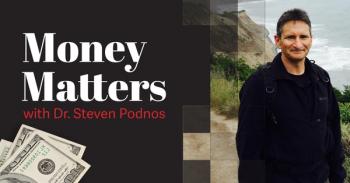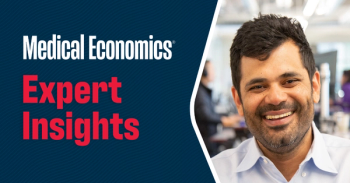
Guide to health savings accounts
HSAs are a tax-free, interest-bearing investment tool in which funds deposited can be spent only on qualified health services.
Since 2004, one option has been the health savings account, or HSA. Coupled with a high-deductible health insurance plan, HSAs are a tax-free, interest-bearing investment tool in which funds deposited can be spent only on qualified health services, including nearly all medical office visits, tests, treatments, and pharmaceuticals. When account holders turn 65, the funds can be spent any way they choose.
Following is an overview of high-deductible health plans and HSAs, and how your practice can work with patients who have them to ensure prompt, accurate payment.
WHO BENEFITS FROM HSAS
In January 2009, at least 8 million people held a HSA, up from 4.5 million in January 2007 and 1 million in March 2005, according to industry group America's Health Insurance Plans (AHIP).
Despite economic woes, health savings accounts balances (the amount saved by consumers) is on the rise, according to a report released in August by Canopy Financial, a company which administers HSAs with offices in San Francisco, Chicago and New Jersey.
The average HSA balance for a family was $1,720 in the first quarter of 2009, up 18 percent from the first quarter of 2008, according to Canopy, and up 7 percent after two quarters of decline in the later part of 2008.
In order to open an HSA, the user is required to enroll in a high-deductible health insurance plan. Almost 100 health insurers, including Aetna, Blue Cross and Blue Shield licensees, Cigna, and UnitedHealthcare, offer HSA products, according to AHIP. United even owns its own bank, OptumHealth Financial Services, which offers HSA programs to consumers and employers.
But AHIP's HSA population estimate may be low, says Donald P. Mazzella, chief operating officer for Ridgefield, New Jersey-based Information Strategies Inc., a market research, consulting, and publishing company that operates the HSA information web- site
The firm, which has surveyed 34,000 HSA users and 4,300 physicians and medical practice staff members, argues there are closer to 10 million HSA holders nationwide, and that figure is likely to reach 12 million this year; in other words, about 1 in every 19 Americans with health insurance will have an HSA. More than 81 percent of HSA holders would recommend the savings accounts to a friend or family member, while only 56 percent would recommend a traditional PPO plan, according to the firm. Likewise, as many as 26 percent of employers who weren't offering HSAs in the past are at least "somewhat likely" to offer the benefit to their employees in the coming year, according to Kaiser.
"This is probably the least-confusing form of payment in the entire healthcare system," says Sande Drew, 54, a media consultant in Sacramento, California who holds an HSA through Anthem Blue Cross. "It is simply a credit card that you put money in, hand to the doc or dentist, and he swipes it just like a credit card. There is nothing complex about it. I used it at the dentist and at the emergency room when my husband had an accident. If both emergency room docs and hospitals accept it, how hard can it be?"
The annual limit for tax-free contributions to an HSA in 2009 is $3,000 for single coverage and $5,950 for families, according to the U.S. Department of Treasury.
Generally, HSAs work best for high-income patients and those who rarely visit the doctor. Chronically ill patients who frequently visit medical offices would quickly reach their high deductible and would likely be unable to save for future care. Acccording to Kaiser, HSA deductibles in 2008 averaged $2,010 for single coverage and $3,911 for a family; minimum deductibles for such plans run around $1,100.
"It's not going to be for everyone," says family physician Jerry Miller, MD, president and CEO of Holston Medical Group in Kingsport, Tennessee, who estimates he has 1,500 HSA-holding patients at his 100-physician multispecialty practice. Miller worries about lower-income, chronically ill patients who avoid care because of their high deductibles, but he says the practice has yet to notice any differences in access among such patients.
Newsletter
Stay informed and empowered with Medical Economics enewsletter, delivering expert insights, financial strategies, practice management tips and technology trends — tailored for today’s physicians.






